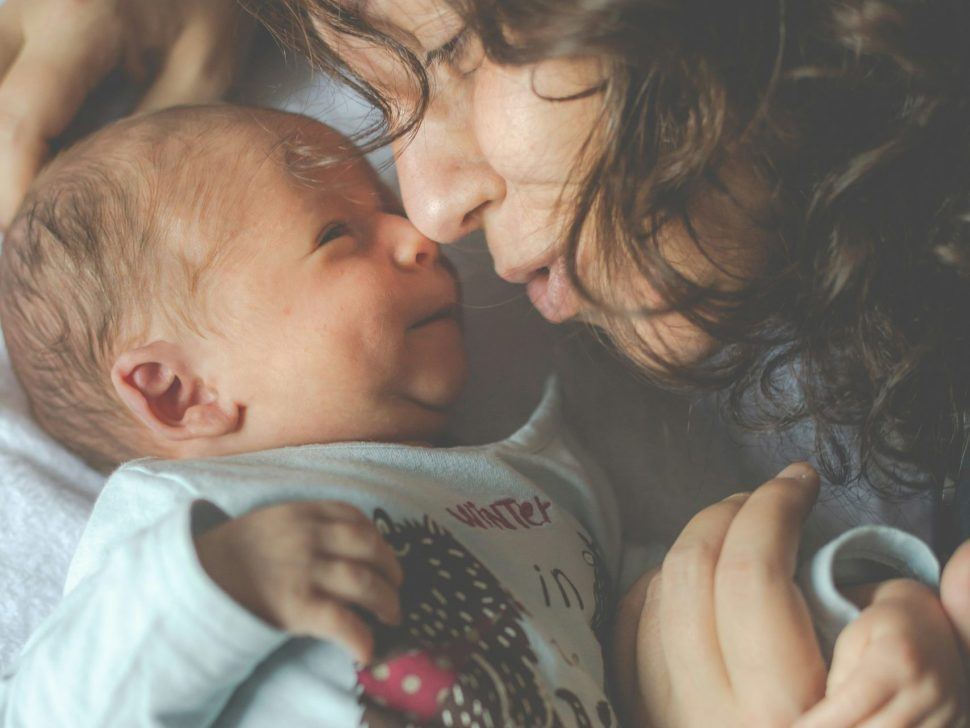What is a Doula?
What is a Doula?
What is a doula? Today, the word doula (if you’ve ever heard of it) is synonymous with birth support, but it wasn’t originally intended that way.
In the 1970s, anthropologist Dana Raphael felt disappointed by her personal breastfeeding experience. She wanted to know why breastfeeding was so difficult in her culture and researched nearly 200 other cultures to find out why. She found similar postpartum care patterns occurring universally:
“I had discovered that there was a physiological process (breastfeeding) that needed to have something in place in the culture or else the lactation function would not work. I don’t know of any other biological process that needs the culture to supply support… If you don’t have that support, usually you cannot feed your baby.”
Dana Raphael went on to coin the word ‘doula’ — in its modern sense — to mean breastfeeding support person. She says she was talking about her discovery when an elderly Greek woman overheard her and said, “Oh yes, that’s a doula.”
The Greek origins of the word doula are dubious; it means female slave. The response was largely negative when the new English use of the word got back to Greece years later, but unfortunately, the name had already stuck.
At Newborn Mothers, we still use the word doula so that people know what we’re talking about, but we also try to interchange it with other more descriptive and appropriate terms. Some people like to call themselves professional postpartum carers or perinatal support workers. When we developed our 12-module evidence-based training, we settled on Postpartum Education and Care Professional.
Today, a doula is typically someone who acts as a hub of support, referrals and resources for a person during a major life transition, usually related to birth. Doulas have a holistic approach that considers both mental and physical well-being. Services vary significantly but can include emotional reassurance, information based on scientific evidence, and comfort techniques like massage and nourishing food. The role is not medical, and doulas cannot treat, diagnose or cure any disease.
Perinatal support professionals are becoming increasingly common as more healthcare professionals recommend them as a valuable part of care. Moreover, the World Health Organisation guidelines recognise:
…a “positive postnatal experience” as a significant end point for all women giving birth and their newborns, laying the platform for improved short- and long-term health and well-being. A positive postnatal experience is defined as one in which women, newborns, partners, parents, caregivers and families receive information, reassurance and support in a consistent manner from motivated health workers; where a resourced and flexible health system recognizes the needs of women and babies, and respects their cultural context
So, now let’s explore what a doula is.
According to DONA International, a doula is defined as “a trained professional who provides continuous physical, emotional and informational support to a mother before, during, and shortly after childbirth to help them achieve the healthiest, most satisfying experience possible.” The role has now expanded well beyond its original meaning.
The services of a doula or similar professional can significantly improve the physical and psychological outcomes for the whole family from the beginning of pregnancy through postpartum.
Research has found that continuous support from a doula is associated with decreased use of pain relief medication during labour, improved breastfeeding outcomes, and greater maternal satisfaction.
Different types of professionals can provide services at various phases in the journey to and through parenthood. These phases may include pre-conception, pregnancy, labour, postpartum and breastfeeding, and even adoption, pregnancy loss, miscarriage, or abortion. We’ll go into more detail about a few different roles below.
Birth doula
Often, when one thinks of a doula, this person comes to mind. A birth doula is hired to help the birth giver and their family through the labour and delivery process from pregnancy. There are some variations in how birth doulas choose to work with their clients, but they’ll typically meet with the pregnant person early on to create a birth plan. A birth doula supports their client throughout pregnancy and is usually there for labour and delivery. They’ll also usually meet with the new parent once more after the birth to answer any questions, help debrief, or provide extra support. The birth doula’s job typically ends shortly after the birth.
Postpartum doula
Ideally, postpartum care is booked and arranged during pregnancy, offering families peace of mind. Expectant parents often meet with their postpartum care provider at least once before the baby is born. They may create a postpartum plan together or discuss the family’s needs to ensure a smooth transition. However, the main work of the postpartum doula begins after birth.
Some doulas offer combined services and continue their role as doulas throughout pregnancy, birth and postpartum. This is called continuity of care and is associated with excellent outcomes for families. Today, mothers can be sent home from the hospital within 4 hours of giving birth, financial pressure sends parents back to work long before they are ready, and extended family often live too far away to help.
It’s clear this isn’t working. One in three women don’t reach their own breastfeeding goals, 80% of couples experience a moderate-to-severe crisis in the transition to parenthood, and one in five mothers experience postpartum depression. The leading cause of maternal death is suicide.
In traditional cultures studied by Dana Raphael, women return to their extended family after childbirth and rest for 40 days. New mothers are fed, nurtured, and nourished. If this care is not provided by the community it must be replaced with professional services, including doulas. Postpartum education and care professionals provide companionship and emotional support, as well as information based on scientific evidence and referrals to other professionals when necessary. Having a baby is a big adjustment for everyone, and postnatal caregivers can support partners, siblings, and extended family during the adjustment. Postpartum doulas try to build a community for the new family by connecting them with educational classes, social groups, and other professionals.
Adoption doula
Doulas can assist even if their clients aren’t the people physically giving birth. An adoption doula assists families undergoing the process of adopting a newborn. They function similarly to a postpartum doula and assist the family with adjusting to life with a newborn baby. They may provide support around specific areas of need, such as inducing lactation so the adoptive parents can breastfeed, safe sleeping, and understanding normal newborn behaviour.
Grief and loss doula
Some doulas support people through stillbirth, miscarriage, abortions, and infertility. There are even death doulas, to provide emotional support to people with a terminal illness and their families.
At Newborn Mothers, our training and membership is specifically focused on the postpartum period. However, many of our graduates and friends work in one of the other roles discussed above as well. You can listen to a diverse range of experiences on the podcast, where we chat with doulas and professionals of all kinds.
Doulas are never medical professionals.
It’s important to remember that no matter the type of doula, this role is not the same as a licensed medical professional. For example, a postpartum support professional does not replace the function of an OB-GYN, midwife or paediatrician. They are not there to make medical decisions for the client, but rather support the families to collaborate with appropriate health care professionals and make informed decisions.
Doulas offer support-based services such as:
- Emotional support
- Evidence-based information and resource recommendations
- Referrals to classes, groups or other professionals
- Practical support like cooking and household organisation
- Support for the father/partner, siblings and extended family
- Support with asking for help and setting boundaries
- Comfort, rites and rituals
- Some doulas have particular skills they can include, like massage or breastfeeding support
Changing the experience of postpartum
Newborn Mothers Postpartum Education and Care Training is for anyone who feels called to work with new families during the life-changing transformation of becoming parents. The World Health Organisation has acknowledged that the postnatal period is a critical life phase for mothers and newborn babies; however, it’s also the most neglected period when it comes to quality care.
Our ultimate wish with our Postpartum Education and Care Training is to provide the tools and skills you need to support families while developing the business know-how you need to get clients and get paid. Many Newborn Mothers graduates have gone on to create fulfilling and sustainable careers—you can listen to their stories here.
If you would like to change the way people experience the transition to parenthood, learn more about this evidence-based training here.
(Excerpt from article originally published on www.newbornmothers.com)
You may also be interested in...

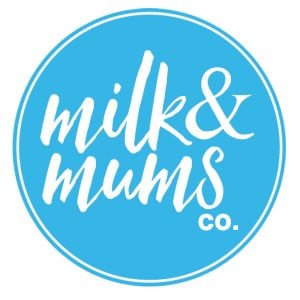
Milk and Mums Co
At Milk & Mums Co we strive to support mothers and families in successfully transitioning to parenting. We have a great depth of experience and our research-based practitioners who can either travel to your home in Sydney or organise a virtual appointment in the comfort of your own surroundings. Our highly qualified team of professionals comprise of Nurses, Midwives, Childbirth Educators, International Board-Certified Lactation Consultants and Sleep Specialists. As a team we are dedicated to the provision of high quality, individualised antenatal, postnatal, lactation and newborn infant care.
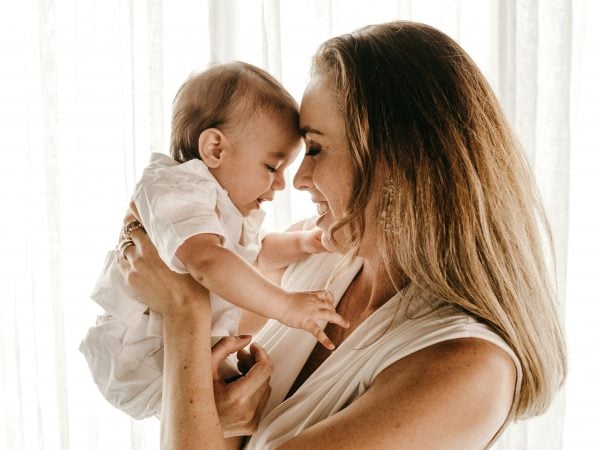
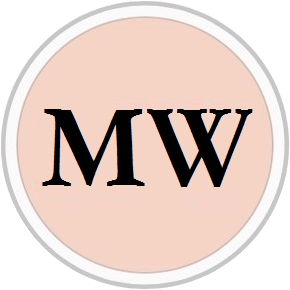
Mummy’s Whispers
Mummy’s Whispers is the Safe Haven for all Parents. Located in Double Bay but servicing all of the Sydney Eastern Suburbs and more.
Discreet, diligent and most of all with a mission to empower parents in their capabilities, whether it is their first or fifth child. From nursery setup to full 24 hour care for the baby, we provide you with confidential and premium care that is tailored bespoke to your family’s requirements.
We work frequently with multiples, surrogacy and same sex couples.
Learn about the support you didn't know you needed.
We have cherry picked the most useful resources for your fourth trimester so that you don't have to waste precious hours searching.
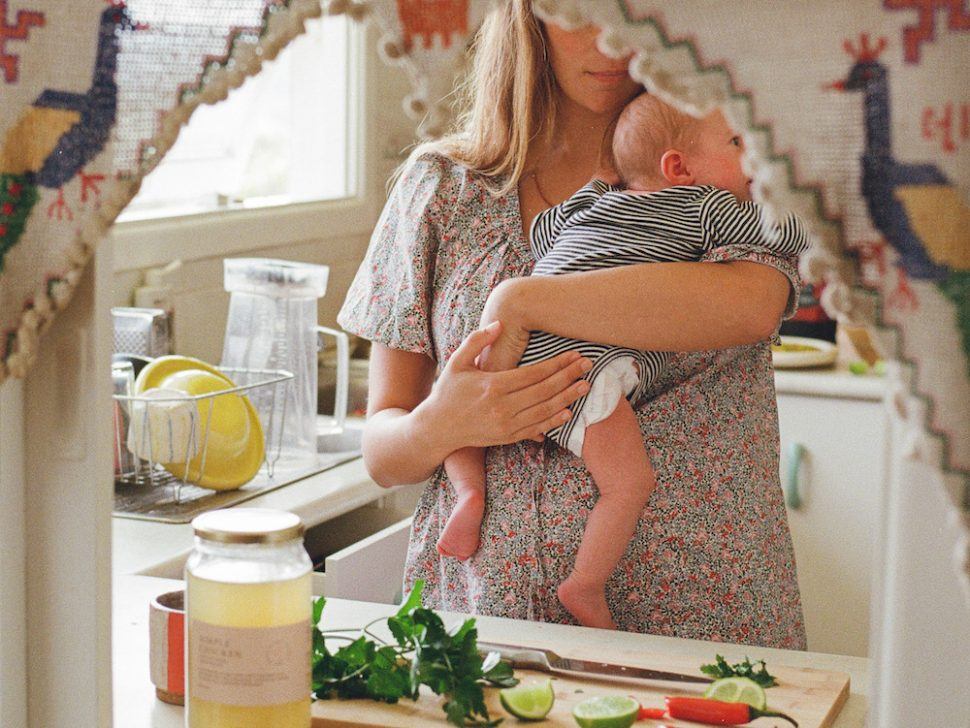

Article - Elise Clement (Psychotherapy & Coaching)
Managing Emotions as a New Mother
Managing emotions as a new mother can be tough. This post shares simple tips to help you process feelings, set boundaries, and support your well-being. Early motherhood is an emotional rollercoaster. This post shares practical tips to help you process feelings and nurture your well-being.

